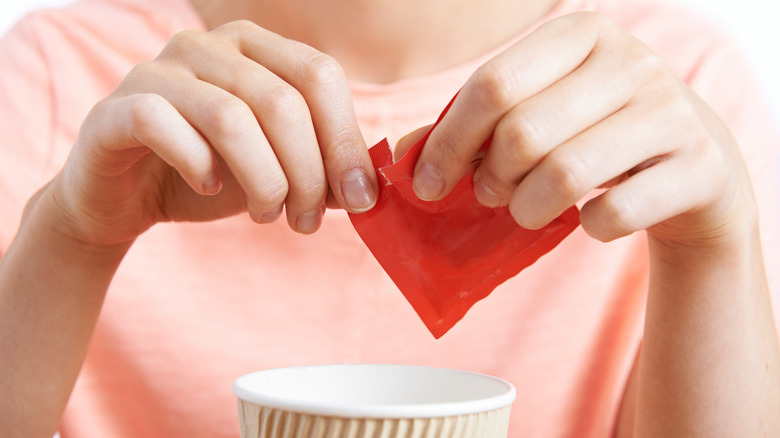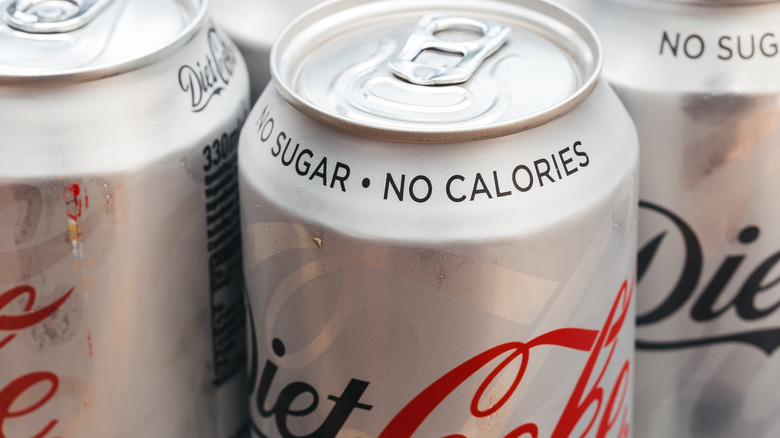Aspartame Could Soon Be Labeled As A Possible Carcinogen. Here's What We Know
A common alternative sweetener used in zero-calorie drinks, diet sodas, and sugar-free products may soon be labeled as "possibly carcinogenic to humans" by the World Health Organization's (WHO) cancer research division next month, according to leaked documents. Aspartame — used by brands Equal and NutraSweet, was assessed by WHO's International Agency for Research on Cancer (IARC). The IARC's findings determined it may be appropriate to change aspartame's current non-carcinogenic "hazard classification."
In IARC Monographs terminology, "possibly carcinogenic to humans" means there's limited evidence a substance may cause cancer in humans, and sufficient evidence from animal trials. It's the same designation given to gas engine exhausts, the occupational hazards of being a barber or hairdresser, and using aloe vera. The IARC uses a grouping system based on the level of certainty a given substance is a carcinogen. The highest is known carcinogens, then "probable" carcinogens, "possible" carcinogens, and finally non-carcinogens.
The International Council of Beverages Associations (ICBA) which represents the interests of the non-alcoholic beverage industry claims that it remains confident in the safety of aspartame. ICBA Executive Director Kate Loatman noted that food safety authorities in over 90 countries (including the FDA) consider it to be a safe sugar alternative. Loatman stated: "Public health authorities should be deeply concerned that this leaked opinion contradicts decades of high-quality scientific evidence and could needlessly mislead consumers into consuming more sugar rather than choosing safe no- and low-sugar options."
What this could mean for aspartame
Findings from the Joint FAO/WHO Expert Committee on Food Additives (JECFA) will be released on July 14, along with an accompanying "risk assessment" that will detail the amount of aspartame they deem safe for human consumption. The American Cancer Society reports that the current assessment is that it would take the equivalent of 36 cans of a diet soda containing aspartame to impact the health of a 132-pound adult.
At this time, it's unclear what the impact of this new classification may be. The IARC does not make or enforce public policies or safety decisions, but simply offers its findings as a "consideration of actions" to prevent cancer. Reuters adds that similar findings in the past have prompted changes in public perception, sparked lawsuits, and brought about recipe changes from producers as a result.
Aspartame's carcinogenic qualities have been in question since it first sought approval from the Food and Drug Administration (FDA) in the 1970s. The sweetener's clearance for use was slowed due to studies that linked it to increases in brain tumors. However, approval was finally granted in 1981, and it quickly became one of the most popular sugar alternatives available thanks to new products like Diet Coke and other low-calorie options.

